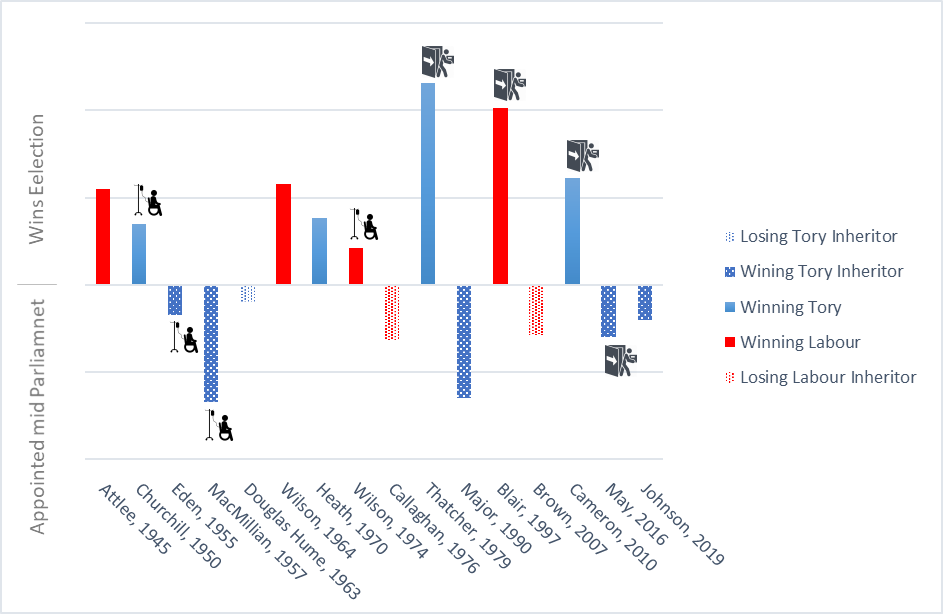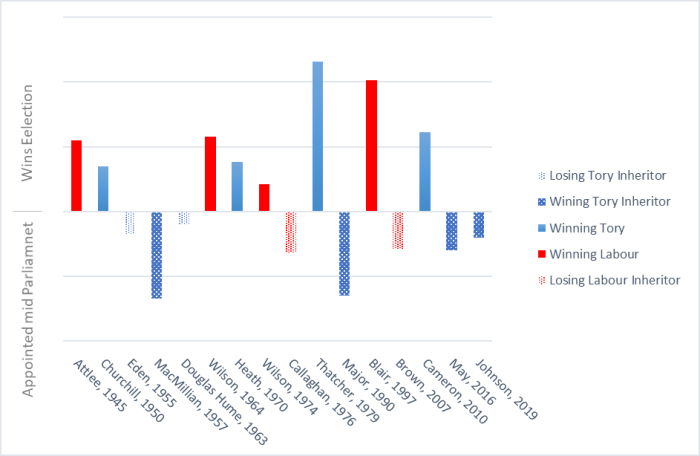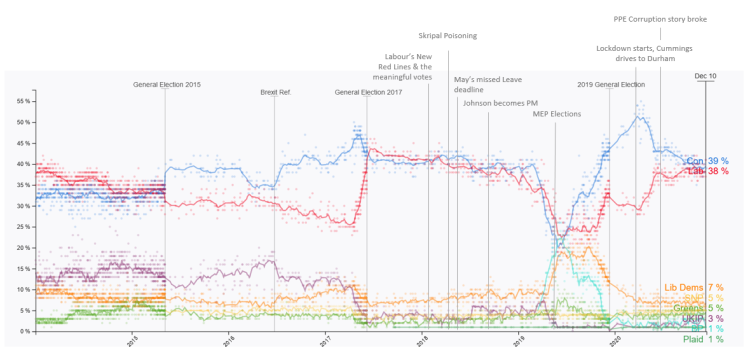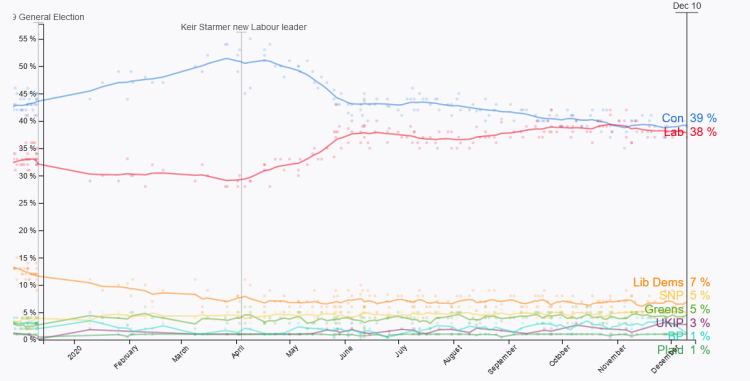In his first speech of the year, Sir Kier Starmer, the Leader of the Labour Party makes a speech on the Tory Govt's flawed response to the coronavirus pandemic. Is this a redefinition of 'responsible opposition'? I am not so sure. This post includes a link to the speech on youtube. I say, "It's ok as far as it goes" but in thre end disappointing.
You have rights, even under lockdown

Last night the Prime Minister announced a new lockdown in England. Top line being that people should stay at home and only leave their homes for work if the work cannot be done at home and is essential. The rest of this blog is a draft of a post to one of my union blogs and talks about the NEU, and how to report employer bad behaviour. There's more below and overleaf.
Nationalism and the class struggle

So many friends are considering leaving the Labour Party, for some it’s the lack of vision expressed by Starmer, for others it’s the rejection of Corbyn’s social democratic manifesto and for others it’s the collusion with the bullying bureaucracy. Others have a powerful political critique of how change happens in society and believe that the events of the last five years show that the Labour Party is not part of a better future. This has been said before by among others Ralph Miliband and so I was looking at his Wikipedia page to see which of his books was the critique of the “parliamentary road”.
There is a quote from his diary, in 1940, which today helps explain the forces behind Brexit,
The Englishman is a rabid nationalist. They are perhaps the most nationalist people in the world … When you hear the English talk of this war you sometimes almost want them to lose it to show them how things are. They have the greatest contempt for the continent in general and for the French in particular. They didn’t like the French before the defeat … Since the defeat, they have the greatest contempt for the French Army … England first. This slogan is taken for granted by the English people as a whole. To lose their empire would be the worst possible humiliation.
Ralph Miliband – from his diary via Wikipedia
Not much has changed it would seem. …
Yet even more on Prime Ministers and their Mandates

I have again revised the diagram I use to illustrate the nature of Prime Ministerial mandates which I last revised a day or two ago. I started thinking about the reasons, other than electoral defeat that leads to prime ministerial departure; it comes down to ill-health or coup, and in parliament, it’s the support of your own party that is critical. I have amended the chart, to show the two reasons for departure and posted it on my wiki.
Three points, as prime ministers get younger they are less likely to resign for reasons of health although the job is much tougher today and all recent ex-prime ministers looked terrible as they resigned, except John Major who was obviously getting a lot of exercise.
My initial diagram was inaccurate in that it showed Eden as a losing inheritor, this isn’t true, he called an election which increased his majority, perhaps Gordon Brown should have studied this episode in history more carefully, but it is unlikely that it would have overcome his risk aversion or cowardice; you choose the word.

Macmillan & Cameron are interesting. Cameron didn’t succumb to ill health, unless not being arsed has become a medical condition, so I count this as a coup. There are friends that dispute this, but he hd clearly lost the confidence of the nation and should have resigned. Macmillan had lost the confidence of his parliamentary party, what with all the shagging and lying, (how times change) but he had enough control to deny those who were plotting the succession because the Tories didn’t do anything as vulgar as have elections in those days.
So my theorem is that Prime Ministers that test their popularity on accession are more successful, with the examples of Douglas-Home, Callaghan (maybe), Brown and May being illustrations of failures who failed to compete within their Party or go to the country.
A second suggestion from the evidence is that either Heath’s 1970-4 administration was a fluke interruption of a 15 year Wilson government or that by selecting Douglas-Home, the Tories gifted Wilson the 64 election which he won by only four seats. Obviously, it can’t be both. If the latter, this shows the shocking success of the Tory Party in selecting its premiers as election winners. If Maudling or Butler has succeeded McMillan, and then beaten Wilson, our governments would have looked like Italy or Japan, or West Germany. Douglas-Home is the only Tory Prime Minister not to have won re-election.
ooOOOoo
I originally published a model in an article called “Mandates” and revised it in an article, ‘PMs and “coronations”’, in which I looked at Theresa May’s record; I made some notes in a wiki article, “Confidence of the House“. …
More about PM’s mandates

I have from time to time reviewed the politics and history of how Britiain’s post-war prime ministers came to power. Earlier today I was reminded of my surprise at school on learning of how Von Papen replaced Brüning ,wondering how someone from the same side could succeed someone who had lost a vote of no-confidence. At the time in the UK, party government was secure and sectarian, although this was about to change. I published a model in an article called “Mandates” and revised it in an article, ‘PMs and “coronations”’, in which I looked at Theresa May’s record, which caused my model problems of definition. I was inclined to believe that now both the major parties have “primary” leadership elections, party coronations are not successful. May is a case in point while Johnson had to fight a member’s ballot. Anyway, as this Tory administration reaches, what if there were any justice, its denouement, here’s what the chart looks like today.

It only shows those leaders who became prime minister; politics may have changed to the point where we need to include those leaders who lost elections as well.
I first explored this in 2010 when the press were claiming that Gordon Brown was squatting in No. 10 after they had monstered him for not seeking a mandate in 2008. Good politics might suggest that he should have done so. …
Labour’s vote: where does the next tranche of voters come from?
I wrote a pissy little piece on the polls the other week but in doing so looked back as far as this one at politico goes. They mark certain key events on the chart, but miss some which I think are important, such as the 2019 Euro-elections, and key counter pandemic events, including Cummings and his drive to Durham and the breaking of the growing corruption story. They also miss the Skripal poisoning, the failure to leave on May’s first deadline, Corbyn’s new red lines and Labour’s NEC’s shit Brexit position for the Euro-election. I’d argue that Labour’s opposition to May in early 2019 won it voter share, but it’s behaviour after that didn’t. Labour’s voter share began to rise after it’s fixed ’19 Conference. The rise and fall of UKIP/LibDems would seem to be the story of the summer and autumn of 2019 suggesting that the electorate was polarising over the issue of Brexit, but that Farage gave up when he realised that his fucking about was jeopardising the Tory vote and there’s no explaining the ludicrous implosion of the LibDems.

The big problem here is that throughout the six year period, with the exception of the 9 months, from June 17 to April 18, Labour’s vote share is under 40%, to reach the FPTP tipping point voter share needs to be above that. It’s a fact that Labour needs to win votes from the Tories but there is some evidence that so-called radical economic policy might win some of the working-class Tory or Brexit Party vote back, if in fact this vote was ever Labour’s. It might be of benefit if the Liberal Democrats recovered some of their vote, especially since they are clearly positioned in the model of European Liberal Parties of ‘dry’ economics, with a dash of social liberalism, add several dollops of constitutional reform and a dash of political sectarianism. If they are kicking lumps out of the Tories who cares? One problem they face is they are not asking themselves these questions either, of where their voters will come from politically or geographically?
How does Labour increase its voter share to over 40%? Where will they get them from politically and geographically? Purges and abstentionism is unlikely to do it unless “Team Starmer” are relying on the idea that Govts lose elections, oppositions don’t win them. If that’s the case, Labour could be waiting a long time. …
Driving Antisemitism out of the Labour Party
The danger of a false nostalgia

In the FT, “Britain will do a Brexit deal on Europe’s terms“, looks at the asymmetry of negotiating power and the role of khaki tinted nostalgia in shaping the Brexiteer’s negotiating position. I particularity like the line, “More broadly, Britain’s Leavers were guilty of swallowing their own propaganda.” and the article finishes with a skewering truth, that Britain “won” the second world war only with and solely because of the help of the USA and in this dispute, they will be on the side of the EU; whether all of this will make Johnson’s government agree a deal on Europe’s terms is another question. They might be too stupid and too proud and too frightened of the Tory party’s cleansed backbenches. …
What are the polls telling us?

Are the polls telling us anything? Here’s a chart from politico.eu , since June, Labour have between 37% and 39%. This is better than earlier in the year but we should remember that polls claim a 3% error margin, which is why multi source publications like this are more accurate than a single company’s results. We should note this Govt. is killing people and guilty of the worst corruption and cronyism, but it is rare for Labour to poll much higher and we need to ask where the next batch of votes are coming from?

Labour supporters should note that the SNP vote share is rock solid at 5%, although there is evidence that the ex-pit and steel towns are returning to Labour, so not only do we need to ask where are the votes coming from, but we need to know where are the seats coming from? …
Too long two

Two years ago, I wrote an article called “Too Long” which analysed the longevity of service of the members of the PLP. I used three charts to show the age of service, which leader was dominant at the time of selection/election and also classifying them as belonging to a hegemonic faction. I have reproduced the charts below/overleaf and added one showing the changes. There is an argument that for the what I originally called the post Corbyn period, as in post his election, we should consider 2015-2017 as one epoch and 2018+ as another, but I haven't. Clearly a number of MPs elected under Blair's leadership have gone, but the average longevity of MPs service is still higher than 5 years, and hasn't changed much and thus the PLP remains not necessarily representative of the massive growth in membership over the 2015/16 period, except for the trigger ballots that is, although four of them failed the trigger and yet were confirmed as candidates. To see the charts, press the "Read More" button ...